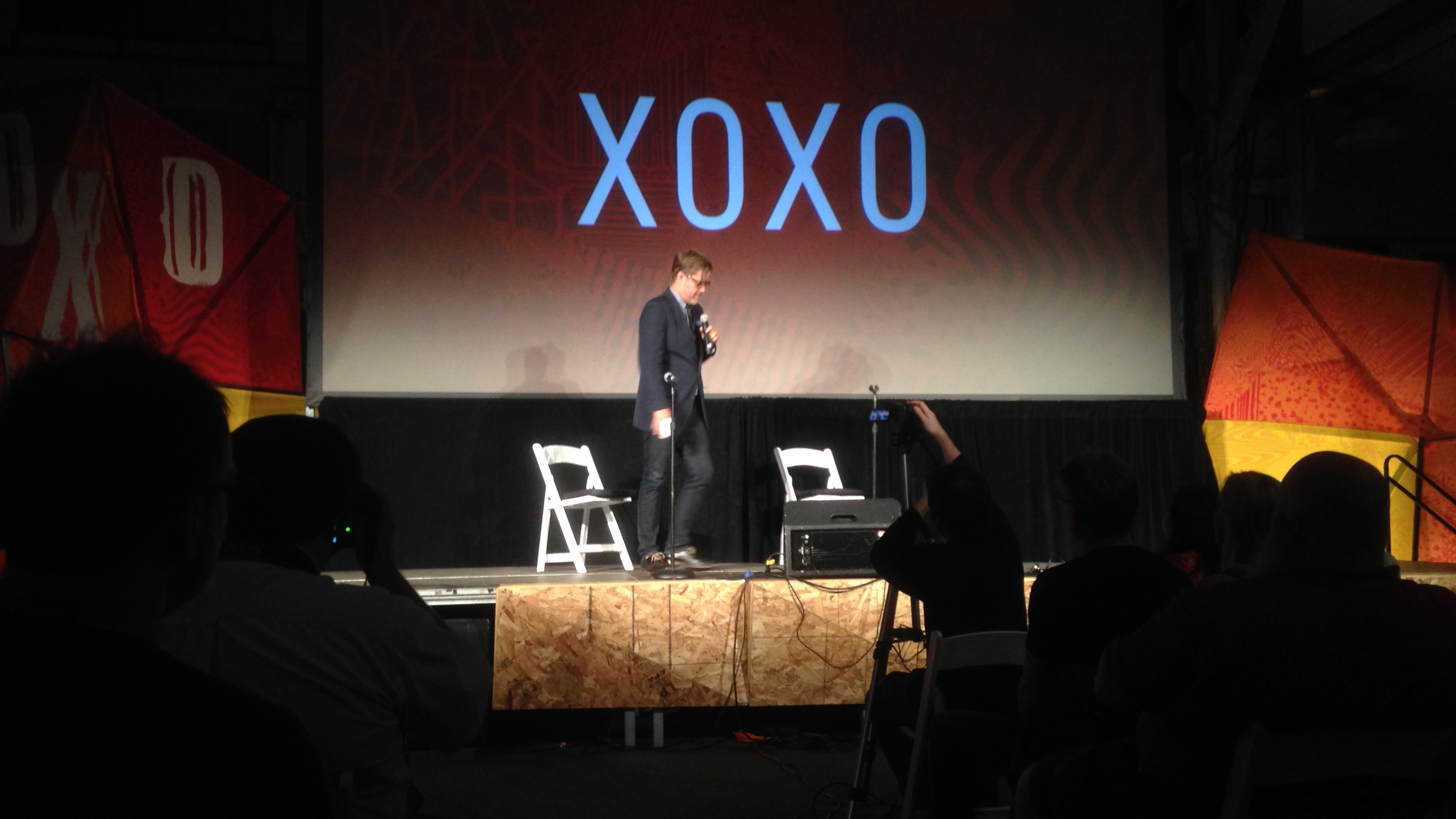
Sprintly’s office is located in Portland. The city is a weird, creative place where a lot of makers flourish.
It’s only fitting that Portland plays host to XOXO, a weird, creative conference focused on makers. On September 11th, I joined hundreds of others for my first XOXO experience.
What makes XOXO truly unique isn’t the talks, the music, or the events (although they’re all amazing). What makes it unique is the wonderful mix of people it attracts. Casey Newton of the Verge said it best:
XOXO draws lots of designers and artists, particularly of the freelance variety, along with a significant number of Silicon Valley tech employees: this year there were attendees from Google, Adobe, Pinterest, and Kickstarter, among others. The twist is that they’re sitting in the audience; this is likely to be the only conference where you see tech CEOs listening to a freelance jewelry designer talk about her struggles paying the rent.
Andy Baio & Andy McMillan (XOXO’s organizers) have created an environment where people can safely share what they’re creating. This is most prominent on their website, where each attendee is given a profile that highlights something cool they’ve made.
Much of my personal inspiration came from hearing about the projects other attendees were working on. I met Mark Otto for lunch one day, and he told me about the genesis of the Bootstrap framework. Amber Case shared her passion for IndieWebCamp. Matthew Bischoff told me about the motivation behind Quotebook, his iOS app. My new friends Tom and Dan design and manufacture really cool physical objects, like this ice kit.
Each story I heard inspired me to make more stuff, both personally and as a part of our team at Sprintly. So many of the people I met seemed “recklessly creative.” They weren’t afraid to take risks, to be unconventional, and to jump into new challenges.
Let me share with you three of my favorite highlights.
Make more stuff
One of my favorite messages from the weekend came from Jonathan Mann:
The more stuff you make, the more good stuff you’ll make.
Jonathan is best known for writing and performing one song a day for over 2,000 consecutive days. That’s a lot of output. In the lead up to his two-thousandth song, he contemplated stopping the experiment. But he realized that his best songs came from the process of creating daily.
In his experience, when you’re putting your creations out into the world, 70% of them will just be OK, 20% will be bad, but 10% will be truly exceptional. For Jonathan, the act of creating something every day means that he produces more great work.
Where does success come from?
Another one of my favorite talks was from Kevin Kelly. Kevin originated the 1,000 True Fans Theory and was also a founding editor of Wired magazine.
Kevin spoke about the paths that lead to success. He says the problem is that most of us are following what’s already been done:
Most people looking for success try to emulate someone who has already been successful.
Kevin argued that instead of following the crowd, creators and companies could use technology to define their own unique kind of success:
Technology allows each of us to have a unique kind of success. There’s more opportunities; more opportunities means me more paths to success.
I found this approach refreshing and also challenging: instead of trying to emulate the success of others, we (as individuals and companies) need to define success on our own terms.
There’s something about this message that’s also freeing: the idea that we don’t have to follow the crowd (in fact, we shouldn’t), seemed to lift a weight off my shoulders. It inspired me to want to do new experiments and blaze new trails.
Why? Why? Why? Why? Why?
Hank Green gave a passionate talk about motivation.
One of the exercises we try to use at Sprintly is the 5 Whys. It forces us to find the underlying reason behind a challenge we’re having.
Hank examined this from the perspective of goals and dreams. He challenged us to think less about what we wanted and more about why.
This is an especially interesting question for companies. We often define who we’re serving, what we’re providing, and how we’re going to provide it, but we don’t examine why we’re doing it in the first place.
When you’re leading a team, answering this question also helps define a raison d’être for the work you do. You may be producing widgets, but why? What difference are you hoping to make in the world? These questions have already produced interesting conversations here at Sprintly.
Will there be more?
The hardest part about attending XOXO is not knowing if it will be the last one. The organizers, Andy and Andy, were pretty up-front: they’re not sure if there will be another event next year.
Andy McMillan calls XOXO “a beautiful catastrophe.” Casey Newton called it “the most interesting weekend in tech.” But I think I like Taylor Hatmaker’s impression best:
Normally I’d just be pigeonholed as the writer for so-and-so. [At XOXO] who you are becomes irrelevant—what do you think? What do you want to build?
XOXO, I hope to see you next year!




